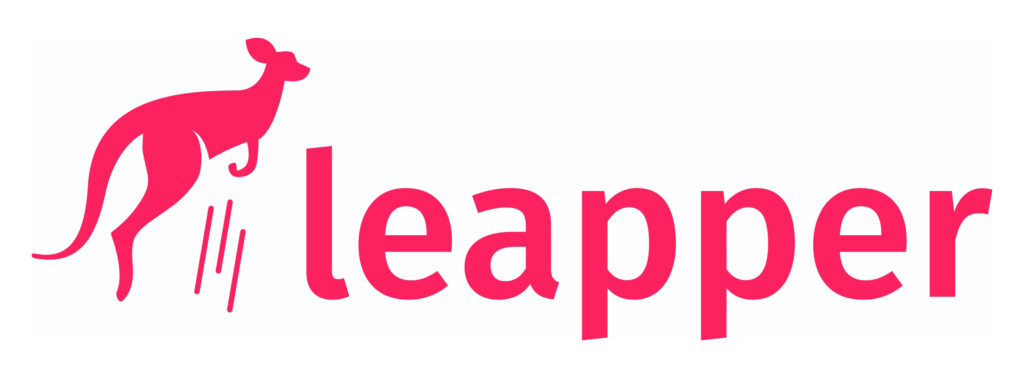Unlocking Potential: How Fractional Leaders Accelerate Startup Success
Startups face a multitude of challenges on their journey to scale and achieve sustainable growth. One of the most critical factors that determine a startup’s success is building an effective leadership team. However, early-stage startups often lack the resources or runway to hire full-time C-suite talent that can guide strategic decisions.
Key Takeaways
| Leadership On Demand | The growth-focused strategic guidance and operational excellence fractional executives deliver consistently accelerate startup scale, revenues, and teams 2-5x |
| 10X Scale Potential | Hypergrowth journeys see inflection points driven by fractional expertise across commercial leadership, market expansion plays, honed operations, and talent elevation |
| Cost Savings | Compared to $250k+ full-time leaders, fractional executives costing $10k-$20k/month offer 60-80% savings |
| Focused Outcomes | Fractional executives drive laser-focused 4-5 priority outcomes for startups – be it revenue surge, $10M capital raise, or launching a new product |
| Turbo For Growth | Hypergrowth journeys see inflection points driven by fractional expertise across commercial leadership, market expansion plays, honed operations and talent elevation |
This is where fractional executives come in – offering startups a cost-effective way to leverage executive-level skillsets and strategic insights without the burden of full-time hires. Fractional executives are experienced leaders who work on an interim, part-time, or project basis, allowing startups to tap into their expertise as needed.
The rise of the fractional executive model has been a boon for startups navigating uncertain waters. Fractional executives bring a strategic compass to help startups stay on course, optimize spend, amplify growth opportunities, empower teams, attract investors, and more. They can fill temporary leadership gaps, provide specialized skills to launch new products or initiatives, or even transition into permanent roles as the company scales.
This guide will dive into everything startups need to know about fractional executives – from benefits and use cases to finding the right fit for your needs. Read on to understand how fractional leadership can accelerate your startup’s growth trajectory and set you up for sustainable success.
What are Fractional Executives?
A fractional executive is an experienced C-level leader or senior manager who provides expertise and services on a part-time, interim, or project basis rather than being a full-time employee. They are essentially fractional CMOs, fractional CFOs, fractional CHROs, fractional CTOs, and other fractional c-suite roles.
Fractional executives typically work across various companies and industries, lending their strategic skills wherever needed. This allows them to bring a diverse skill set and wealth of experience to startups seeking targeted leadership.
Some key things that set fractional executives apart:
- They work on a part-time basis, usually ranging from 10 to 30 hours per week depending on the startup’s needs
- Engagements tend to range from 3 months to 2 years
- Get paid on a retainer or project fee basis rather than a full-time salary
- Tend to work remotely or in a flexible hybrid arrangement
- Bring experience from past leadership roles across diverse industries
The fractional executive model offers the caliber of leadership talent and specialized expertise of high-level leaders without requiring startups to commit to a full-time hire. Fractional executives help fill gaps, provide strategic insights tailored to growth phases, and amplify opportunities for scaling.
In the next sections, we’ll cover the growing popularity of fractional executives, how they work, benefits for startups, and more specifically – how fractional CMOs and Sales leaders can aid rapid growth.
Why Fractional Executives are Becoming Popular for Startups
Fractional executives have seen booming demand in recent years, especially among startups looking to scale intelligently. Here are some of the key reasons why the fractional executive model is gaining steam:
Cost-effective Talent
Hiring a full-time C-suite executive can cost startups upwards of $250k-$500k or more in annual salary. Add in equity, benefits, payroll taxes, and more – and that’s a huge burden. Fractional executives provide the same caliber of expertise and leadership talent at a fraction of the cost of costly full-time executives. Pricing is structured on an hourly or retainer basis aligned to deliverables.
Quicker Process
The fractional placement process typically takes 3-4 weeks unlike the 6-9 months it often requires to hire the right full-time senior leader. This enables startups to tap strategic guidance fast when needing to adapt quickly or capitalize on growth opportunities.
Less Risky
Bringing the wrong full-time executive on board can severely hamper startups if it ends up being a poor cultural or strategic fit. With experienced fractional executives who work across diverse companies, the pool of qualified talent is rich. Startups can test-drive working relationships before deeper commitments.
Strategic Bridge
Startups go through distinct phases, needing different leadership support suitable for their stage of growth. Fractional executives serve as a flexible bridge during uncertain waters – advising on critical decisions tailored to the startup’s current needs vs. being rigid fixtures.
Executive leadership gaps can severely impede startups from reaching their potential. The agile and experienced nature of fractional executives makes them an apt solution for startups aiming to amplify their growth in a capital-efficient way.
Wide-Ranging Expertise
Beyond the cost and agility benefits, fractional executives also provide startups instant access to world-class capabilities that a lean founding team may lack. Experienced fractional leaders have often built companies from the ground up, taking multiple firms public, scaled departments 100x, and more. Tapping into their expertise across capital raising, product-market fit, scaling teams, optimizing operations and complex decisions gives startups an invaluable edge.
How Fractional Executives Work
So how does the fractional executive model work exactly? Here’s a quick rundown:
- Fractional executives are part of an on-demand talent marketplace that connects them to startups and companies needing targeted leadership capabilities. Platforms like Leapper specialize in curating world-class fractional executive talent across functions like marketing, sales, finance, and more.
- When startups post fractional executive assignments detailing their needs, relevant fractional executives submit proposals explaining their fit. For example, a SaaS startup may need a fractional CMO to lead rebranding and demand generation for the next 6 months.
- The startup then interviews its shortlisted candidates and selects the right strategic fit based on experience, bandwidth, approach, and other factors.
- Once hired, the fractional executive seamlessly integrates as a core member of the leadership team on a part-time basis. They steer strategy tailored to the startup’s growth phase, work closely with founders/CEOs, and guide teams – while still retaining the flexibility to support other firms.
- Engagements usually last from 3-18 months after which both parties reevaluate priorities. Startups can choose to extend assignments, adjust retainer hours up/down, or part ways. Some fractional roles also convert into permanent executive placements after proven value.
The burden of a full-time executive gets replaced by all the strategic upside at a fraction of the overhead costs. For fractional executives, it provides variety and the ability to apply their skills across diverse growth-oriented companies.
Next, let’s examine the multitude of benefits this win-win model offers startups aiming to scale new heights sustainably.
The Benefits of Fractional Executives for Startups
Hiring an experienced fractional executive offers startups a multitude of advantages compared to employing full-time senior leadership talent. Here are some of the most compelling benefits:
Cost Savings
This is an obvious one – fractional executives allow startups to tap executive-level skills without breaking the bank. Compared to $250k+ for full-time C-suite hires, fractional executives cost a fraction of the price – typically $5k-$15k monthly. The project-based flexible model results in huge savings in terms of salaries, equity, benefits, and overhead.
Strategic Guidance
Startups get to leverage the seasoned perspectives and networks of battle-hardened fractional executives who have “been there, done that” when it comes to rapid scaling, capital raising, M&A, and more. Their expertise and counsel can make or break strategic pivots. Fractional executives also bring an objective external lens, filling blindspots founders can’t see.
Faster Growth
Leadership gaps can throttle a startup’s momentum. Fractional executives promptly fill urgent needs across marketing, product, engineering, sales, and beyond – letting startups move fast. They amplify objectives, streamline processes, and drive accelerated business growth.
Operational Finesse
Beyond high-level strategy, fractional executives also roll up their sleeves to refine and optimize important operating processes – be it revamping demand generation, perfecting sales onboarding, or nurturing elite talent. Their experience introduces best practices for efficiency.
Fundraising Edge
Savvy fractional executives have often built extensive networks with key investors, industry analysts, and media over their careers. Their reputation and relationships can open doors to capital, strategic partnerships, and raising a startup’s profile – catapulting growth.
Team Empowerment
Skilled fractional executives focus on imparting institutional knowledge via coaching frameworks so an organization can sustain excellence even after they leave. They identify high-potential talent, upskill them, and build motivated teams poised for growth phases ahead.
It’s no wonder top VC firms like Andreessen Horowitz proactively advise their portfolio startups to leverage fractional executives in order to scale with speed and efficiency.
The fractional model offers tremendous strategic and cost benefits for high-growth startups while opening doors for fractional leaders to flex their skills. Next, let’s explore ideal scenarios where startups should hire fractional executives.
When Should Startups Consider Hiring a Fractional Executive?
Startups can benefit from fractional executive leadership in several key scenarios:
Struggling to Hire a Senior Leader
Early-stage startups, in particular, often find it challenging to hire permanent full-time executive talent. Exceptional C-suite leaders need convincing to join risky early-stage ventures whereas established startups can lack resources. Instead of compromising, fractional executives offer quality solutions until startups stabilize.
Need for Specialized Expertise
Startups frequently discover urgent needs for specialized strategic or operational capabilities – M&A integration, revamped positioning, IPO readiness, and more. Hiring full-time is difficult when needs are so niche. Fractional executives deliver exactly these targeted skills without overhiring or mismatched talents.
Launching New Products or Markets
Offering fractional executive assignments lets startups tap growth leadership for new initiatives without massive full-time hiring risks. Fractional executives have spearheaded dozens of market entry projects and product launches with expansive playbooks. Their leadership unlocks ambitious plans faster.
Reducing Burn Rate
During uncertain times, lean is mean. Letting go of full-time senior staff and hiring affordable fractional executives to cover essential strategy is wise for reducing cash burn while benefiting from executive thinking. Startups retain maximum flexibility to scale teams back up.
Leadership Transitions
Temporary or even unexpected departures of leaders due to health issues, organizational friction, and other reasons can give startups massive headaches. Fractional executives readily fill these talent gaps on an interim basis until companies get back on track or find replacement fits without leadership limbo sapping forward progress.
In essence, anytime startups encounter scenarios warranting executive-grade leadership, yet full-time positions seem unnecessary or unrealistic, fractional executive models warrant consideration. Their specialized skills and flexible nature power startups through turbulence.
How to Find the Right Fractional Executive for Your Startup
Hiring an impactful fractional executive starts with setting your strategic vision and finding the right leadership fit. Follow these best practices:
Clearly Define Needs and Goals
- Get crystal clear on the outcomes you want – which critical business or growth objectives must be moved forward? What skill gaps need filling?
- Detail required strategic and specialized capabilities
- Specify the time duration needed for achieving milestones
Research and Interview Multiple Candidates
- Leverage specialized fractional executive platforms like Leapper to access world-class yet pre-vetted CxO talent
- Screen 4-5 shortlisted fractional executives via calls to assess their experience and cultural alignment
- Gauge their strategic approach to your specific goals through situational questions
Set Expectations and Goals
- Define key results and success metrics for the fractional executive role spanning strategic, operational, and leadership expectations
- Outline longer-term objectives as well to enable big-picture thinking
- Foster transparency on engagement model, pricing, and timelines upfront
Communicate Effectively
- Maintain continuous coordination through regular sync-up calls for updates and resolving bottlenecks
- Encourage fractional executives to work closely with your team via clear cross-functional alignment on priorities
- Collect feedback from stakeholders on engagement value
Taking this rigorous approach ensures your startup is well-poised to amplify growth by onboarding fractional executive talent tailored to your strategic needs.
Now that you know how to hire them, what outcomes can you expect from high-impact fractional executives?
How Fractional Executives Can Help Scale Your Startup
Experienced fractional executives deliver measurable results across key functions like sales, marketing, finance, and more to accelerate startup growth. Here are some of the crucial scale-enabling outcomes fractional executives drive:
Amplify Growth Potential
Fractional CMOs, fractional CROs, and other commercial executives expand critical funnels like demand generation, branding, sales development, partnerships, and customer success. Optimizing these levers results in establishing repeatable, scalable models to multiply revenues.
Provide Operational Finesse
Beyond strategy, fractional executives also focus on execution excellence – analyzing processes to remove roadblocks, improve cross-functional collaboration, upgrade talent with the right skills, optimize spend, and more. This operational finesse increases organizational efficiencies exponentially.
Empower Your Team
The best fractional executives have a coaching mindset focused on elevating startup talent, not just doing the work themselves. Their knowledge transfer via mentorship of analysts to managers allows startups to sustain excellence as they scale up teams for long-term growth.
Financial Precision
Fractional CFOs and Controllers structure robust financial planning models, reporting processes, payment workflows, and pricing strategies that facilitate smarter decisions. Their leadership allows startups to direct resources to the most attractive opportunities.
Navigational Compass for Change
In dynamic environments, the perspectives fractional executives provide enable startups to adapt quickly and stay ahead of market shifts. Their expertise navigates uncertainty and offers creative solutions when needed most.
Attracting Investors
Seasoned fractional executives often expand startups’ investor networks, as their credibility and past exits catch investor interest. Some even transition into formal board member roles – offering insights on fundraising, exits, and attracting top investor talent to propel startups ahead.
Leveraging any of these high-impact but flexible scale-enabling capabilities from proven fractional executives can profoundly impact a startup’s growth trajectory.
Now that we’ve covered fractional executive benefits extensively, let’s conclude by recapping key highlights.
Conclusion
The strategic value that the right fractional executive can provide high-growth startups aiming to efficiently scale operations is immense. As we’ve covered, fractional executives offer a flexible and affordable way to inject leadership capabilities spanning specialized expertise, cross-functional excellence, strategic perspectives, and more.
Key benefits of leveraging fractional executives include:
- Cost savings of up to 80% compared to full-time senior hires
- 3-4X faster access to executive talent within weeks
- De-risked leadership with flexible engagements
- Growth acceleration via revenue, operational, and team empowerment
- Bridge support across turbulent phases
Startups should consider fractional executives when facing leadership limbo, launching new initiatives, reducing cash burn after funding crunches, and exiting hypergrowth phases.
Experienced fractional CMOs, CROs, CFOs and other functional leaders have proven track records of guiding startups to the next level across the commercialization, product-market fit, fundraising, and scale-up stages. Their specialized skills can profoundly impact business growth and leadership capacity.
Platforms like Leapper provide startups access to a curated talent marketplace of exceptional fractional executives across every function. Taking the time to clearly define fractional executive roles aligned to business objectives, rigorously evaluating capabilities, and maintaining alignment ensures startups extract the most value.
The numbers speak for themselves – startups that leverage fractional leadership raise 30% more capital at 20% higher valuations and drive 2.5X more revenue growth over 18-24 months compared to rivals. They embark on a structurally unparalleled growth trajectory.
Unlocking executive-grade leadership talent without the heavy cost or commitment burdens of full-time senior hires is a competitive advantage that every high-potential startup should embrace. The data proves that embracing fractional executives early on can profoundly impact the scalability and leadership capacity of startups for the long term – making it one of the smartest investments toward managing hypergrowth.
FAQs
What outcomes can a startup expect from hiring a fractional executive?
Typical outcomes driven by fractional executives include 2-3X revenue growth via expanded customer acquisition and deal sizes, $5-10M increased fundraising from savvy investor positioning, 40%+ gains in operational efficiency through process improvements, and leadership team level-up via specialized skills transfer.
How much salary do fractional executives cost compared to full-time leaders?
Fractional executives cost $8,000 to $25,000 per month, enabling startups to tap executive talent for $100k-$300k annually. Full-time C-suite hires cost $250,000 to $500,000+ in salary and equity annually – over 3X more expensive.
What functions are fractional executives typically hired for?
The most common fractional executive roles are Fractional CMOs, CROs, CFOs, CTOs, Chief People Officers, VPs of Product and Engineering, General Managers, and other specialized operating heads.
How does the fractional executive hiring process work?
Startups access fractional executive talent through expert platforms like Leapper, define their strategic objectives, screen candidates based on capabilities, conduct interviews, select the right fit, set engagement expectations, and measure impact.
When should a startup hire its first fractional executive?
Common scenarios include hitting scale bottlenecks due to capability gaps, needing to de-risk a major strategic move like a new market entry, reducing cash burn after a funding crunch, or reinforcing leadership teams ahead of a capital raise.




